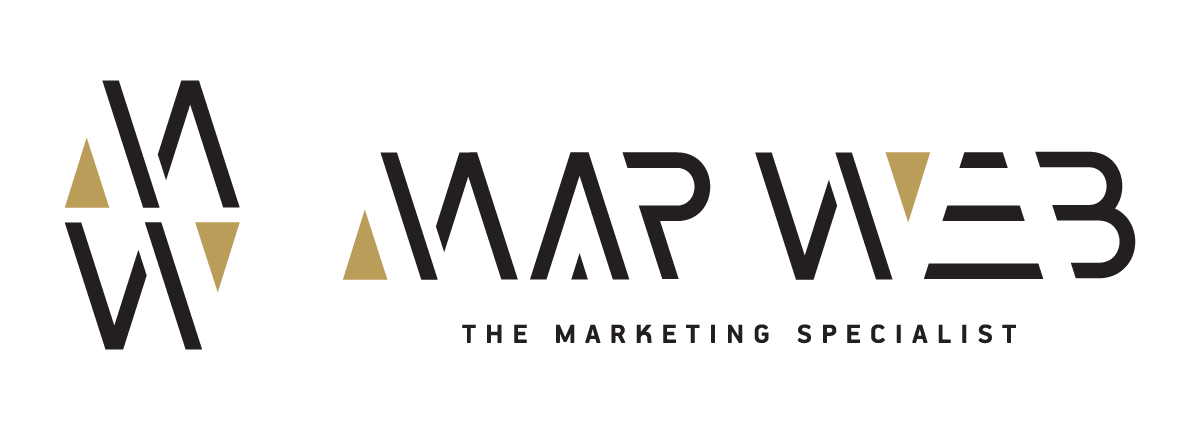first page of google
Trust Marweb SEO Agency to get to the top
There is no magic.
with hard Work and patience you will rise to the 1st Page of Google
THE Company We use White Hat strategies to create fresh content with our copywriters, nothing is done by "luck".
THERE ARE NO "MAGIC RODS" it is not possible to find your business from the 1st week-Month on the 1st Page It takes Discipline-Patience-Endless hours of work and Persistence to the Goal.
first page of google
Do SEO and in 6-8 months see Website traffic 6 times Up.
SEO (Search Engine Optimization) is something that a company should do long-term. Website and SEO is a pairing that if you leave one or the other then sooner or later you will start losing traffic and money
Marweb Agency has a lot of experience in the field of SEO since it only deals with this. We faithfully follow Google's instructions and are updated daily on what's new in the SEO field so we can follow it.
We follow a series of techniques with detail and meticulousness.
- We put a lot of emphasis on building a Website or building an Eshop
- We develop Friendly Content
- We create Articles on every Site for any market
- We emphasize the speed of the Website as well as being mobile Responsive, i.e. mobile-friendly
- We optimize each page Separately with On Page techniques as well as Off Page.
- Keyword Research We research the keywords we want to target and emphasize more
- We build Link Building which come to the Site and incoming Links after linking the pages
- We monitor and inform you at regular intervals about the presence of keywords and their ranking
Do you want to be on the front page?
contact us!

SEO FAQ
Why is SEO important for my website?
SEO, or search engine optimization, is vital to your website for a number of reasons. First, it helps your website rank higher in search engine results pages (SERPs), making it easier for potential customers to find you. When people search for a specific keyword or phrase related to your business, you want your website to appear on the first page of results, as the majority of users rarely venture past the first page.
By optimizing your website for relevant keywords, you increase its visibility and attract organic traffic. This means that users who are actively searching for products or services like yours are more likely to visit your website. For example, if you run a bakery in New York, optimizing your website for keywords like "best bakery in New York" or "artisan bread in Manhattan" can help attract local customers who are specifically looking for what you offer.
SEO also helps improve the user experience on your website. When optimizing for SEO, you focus on factors such as site speed, mobile responsiveness, and ease of navigation. These factors not only help search engines better understand and index your site, but also provide a positive browsing experience for your visitors. A well-optimized website is more likely to keep users engaged, reducing bounce rates and increasing the chances of conversion.
Additionally, SEO is cost-effective compared to other digital marketing strategies. While paid advertising can produce immediate results, it requires a significant budget to maintain exposure. On the other hand, SEO focuses on organic search results, which means you don't have to pay for every click or impression. With proper optimization, your website can continue to drive traffic and generate leads with no ongoing costs.
Finally, SEO is a long-term investment that helps build credibility and trust for your brand. When your website consistently ranks high in search results, users perceive your business as trustworthy and authoritative in your industry. This can lead to increased brand awareness, customer loyalty and ultimately higher conversion rates.
Does SEO content only focus on keywords?
No, SEO content does not focus solely on keywords. While keywords are an important part of SEO, creating content that focuses solely on keywords can lead to a poor user experience and potentially lead to penalties from search engines.
Effective SEO content goes beyond keyword optimization and prioritizes providing value to the reader. Its goal is to respond to the user's intent and answer their questions. This means creating content that is informative, engaging and relevant to the target audience.
Apart from incorporating relevant keywords, SEO content should also consider other important factors such as
-
User Experience: Ensuring content is readable, visually appealing and mobile friendly. This can include using headings, bullet points and images to break up text and improve readability.
-
High-quality and original content: Create unique and valuable content that sets your website apart from competitors. This may include providing in-depth information, expert knowledge or unique perspectives on a particular topic.
-
Link Building: Build high quality backlinks to your content from trusted and relevant websites. This can be done through guest blogging, reaching out to industry influencers, or creating shareable content.
-
Social Media Integration: Promote your content on social media platforms to increase visibility and engagement. This can help drive more traffic and encourage social sharing, which can further boost your SEO efforts.
-
User Engagement Metrics: Track and analyze user engagement metrics such as bounce rate, time on page, and click-through rate. This data can provide insight into how well your content is resonating with your audience and help you make necessary improvements.
How does SEO work?
SEO, or Search Engine Optimization, is the practice of optimizing a website to improve its visibility and ranking in search engine results pages (SERPs). The goal of SEO is to drive organic, or unpaid, traffic to a website by ensuring that it appears in search results when relevant searches are performed by users.
SEO involves a combination of techniques, both on-page and off-page optimization techniques. Technical SEO refers to improving the technical aspects of a website so that search engines can easily crawl and index its pages. This includes optimizing site speed, ensuring proper URL structure, using XML sitemaps, and improving mobile friendliness.
On-page optimization focuses on optimizing individual web pages to be more relevant to search queries. This includes optimizing title tags, meta descriptions, headings and content. Keyword research plays a critical role in on-page optimization as it helps identify the terms and phrases that users are searching for and should be strategically incorporated.
Off-page optimization refers to actions taken outside of the website to improve its visibility and authority. This includes building high quality backlinks from trusted and relevant websites, social media marketing, guest blogging and reaching out to influencers. These efforts help search engines recognize the site as trustworthy and authoritative, thereby improving its ranking.
To better understand how SEO works, let's look at an example. Let's say you have a website that sells organic skin care products. To optimize your website for SEO, you will first conduct keyword research to identify relevant and high-volume keywords related to organic skin care. You would then strategically incorporate these keywords into your website's content, meta tags, and URLs.
Over time, as search engines crawl and index your optimized website, they will recognize it as relevant and authoritative for organic skin care products. As a result, when users search for terms related to organic skin care, your website will have a higher chance of appearing at the top of the SERPs. This increased visibility will lead to more organic traffic to your website, potentially leading to higher conversions and sales
What is on-page optimization and why is it important for SEO?
On-page optimization refers to the practice of optimizing various elements of a website to improve its visibility in search engine rankings. It involves optimizing both the content and HTML source code of a web page. On-page optimization is vital to SEO because it helps search engines understand the content and relevance of a web page, ultimately leading to higher rankings.
There are several key elements involved in on-page optimization:
- Keyword Research and Optimization: Researching and choosing the right keywords is the foundation of on-page optimization. By understanding the search terms your target audience uses, you can optimize your content and meta tags to align with those keywords. This helps search engines understand the relevance of your website to specific search queries.
- Title Tags and Meta Descriptions: Title tags and meta descriptions are HTML elements that provide brief summaries of a web page's content. Optimizing these elements with relevant keywords helps search engines determine the topic and relevance of your web page. Additionally, well-optimized title tags and meta descriptions can also attract more clicks from search engine users, increasing your organic traffic.
- Content Optimization: Creating high-quality, relevant and engaging content is essential for on-page optimization. By strategically incorporating keywords throughout your content, search engines can easily understand what your website is about. However, it's important to balance your keyword usage with natural, reader-friendly content to avoid keyword stuffing, which can negatively impact your SEO efforts.
- URL Structure: Optimizing your URLs helps search engines and users understand what your website is about. A URL with descriptive keywords is easier to read and more likely to be chosen by users. It is recommended to use short, descriptive URLs that include relevant keywords.
What is the difference between organic and paid search results?
Organic and paid search results are two different types of search results that appear on search engine results pages (SERPs). Understanding the difference between the two is crucial to a successful digital marketing strategy.
Organic search results are the listings that appear in the SERPs based on their relevance to the user's search query. These results are not affected by any form of payment to the search engine. Instead, they are determined by a number of factors, including relevance of page content, backlinks, website authority, and user engagement. Organic search results are considered more trustworthy by users because they are based on the value of the website relative to the search query.
For example, if a user searches for "best smartphones", the organic search results will show websites that have optimized their content for that particular search query and that the search engine's algorithm has determined to be the most relevant and valuable.
Paid search results, on the other hand, are listings that appear in the SERPs as a result of paid advertising. Advertisers bid on specific keywords or phrases, and when a user searches for those keywords, the search engine displays the paid ads prominently on the page. These ads are labeled "sponsored" or "ads" to differentiate them from organic search results.
For example, if a user searches for "buy smartphones online," the paid search results will show ads from advertisers who have bid on that keyword. These ads usually appear at the top of the SERP and sometimes at the bottom or side of the page.
One of the main advantages of paid search results is that they allow advertisers to target specific keywords, demographics and locations, allowing them to more effectively reach their desired audience. Paid search results also provide instant visibility and can generate instant traffic to a website.
